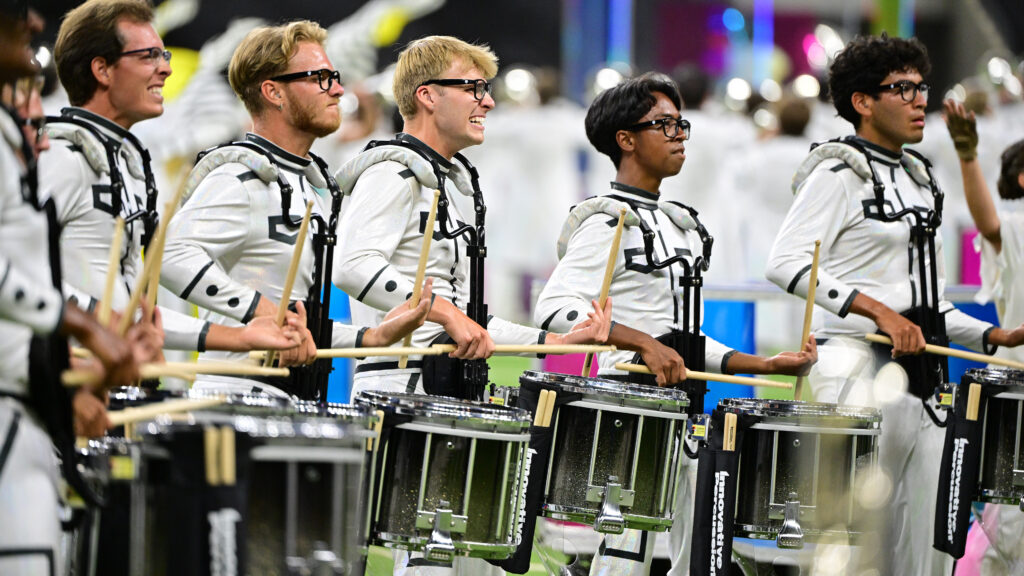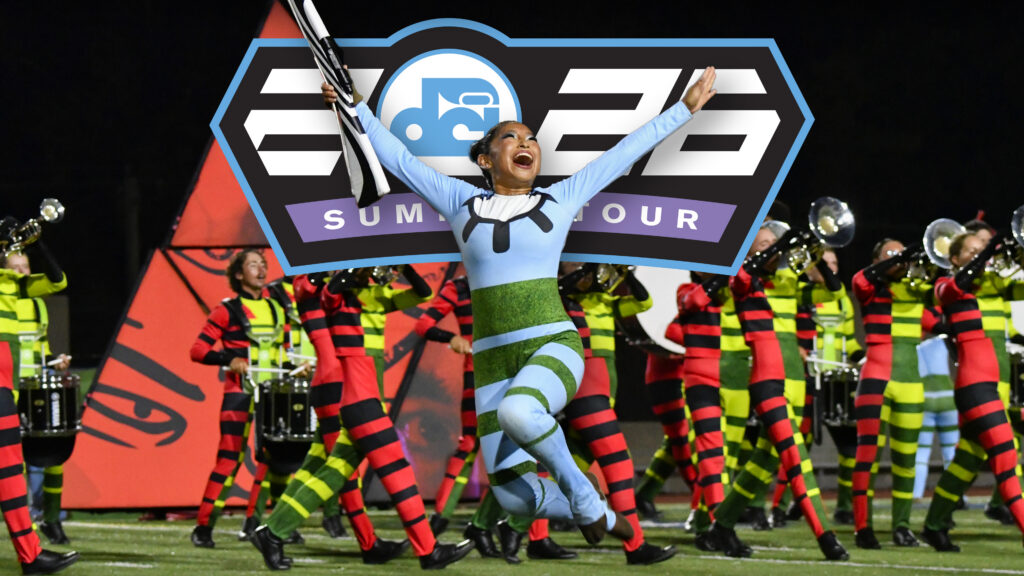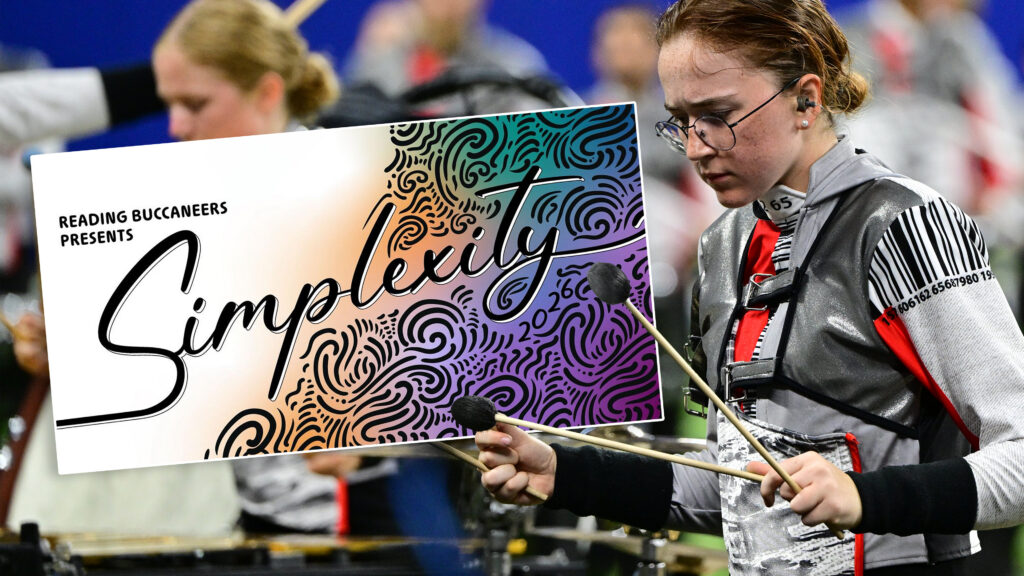By Joe Smith After months of begging from the man that claims to have “created” me I have decided to finally interview him. This man is none other than my high school visual technician, James McNab. He has been a very large inspiration to me, and was the one responsible for talking me into playing the godly mellophone. So without further ado here is my interview with James McNab.
Joe Smith:
Please enlighten us with your background information, so that the people know who you are.

James McNab:
I received my bachelor’s degree in journalism from Iowa State University in 2000. I’ve worked in television and video since then, including news, commercial and corporate/industrial production. Currently, I’m the director of creative services at Paxson Communications in Des Moines, Iowa.
Smith:
How about your marching background?
McNab:
I was a member of the 1998 Dubuque Colts. Prior to that, I marched in the trumpet lines of both the Iowa State University Cyclone Football “Varsity” Marching Band and the Wando High School Warrior Marching Band.
Smith:
Why did you decide to march Colts? And mellophone for that matter, since you are a trumpet player?
McNab:
I was first exposed to drum corps my freshman year in high school. The first show I ever saw was the 1992 Blue Devils. To this day, “When a Man Loves a Woman” remains my all-time favorite drum corps chart. I remember being very impressed and even starstruck and thought, “There is no way I’ll ever be good enough to ever perform in a corps.” Flash-forward to 1997, when I went to my first ever live drum corps performance at the Midwest Preview of Champions in Whitewater, Wis. Sitting in the stands at Warhawk Stadium, I remember still being impressed and awestruck, but also thinking that I could do this. I would turn 20 the next summer so I had to “get off my butt,” so to speak, and try out for a corps. That night two corps really caught my attention. The Garfield Cadets and the Dubuque Colts. Garfield’s mellophone line that year was amazing and I remember literally jumping out of my seat during the opening licks of “Year of the Dragon.” But it was the Colts’ “Blood, Sweat and Tears” show that sealed the deal. Six months later I auditioned on mellophone in front of Chuck Naffier at the Colts’ December camp. The rest, as they say, is history.
Smith:
How did you get involved in teaching marching band?
McNab:
They made the mistake of letting me in the door one day and I haven’t left since. In 2001 I left a job producing the morning news for the CBS affiliate in Des Moines. For the non-TV people reading this, to produce a 2 1/2 hour morning news show you need to start writing many, many hours earlier. And since the show went on the air a 5:30 a.m., I went to work at 11 the night before. I would come home around 9 a.m. and promptly go to bed. Not exactly the most socially positive thing for a 23-year-old to do. So when I got a job that actually started at a normal hour, I was looking for some more social opportunities. So I started taking Tae Kwon Do, spent more time with my family and friends — and volunteered with a local marching band. I called around to some local high schools, and Paul Brizzi from the Ankeny Band made the mistake of answering the phone. I remember my first meeting with Brizzi and Joel Poppen, the directors of the Ankeny Band. Joel and I spent the time talking about my past experiences, techniques, ideas, etc. After a while, Brizzi leaned in and said, “We’re not going to be able to pay you for this.” Me: “That’s fine. I just want to volunteer.” Poppen and I would talk some more, when Paul would interrupt. Brizzi: “You know we can’t pay you.” Me: “I know. No problem, I have a job.” And that was my first introduction to the Ankeny Marching Hawks. I want to talk the opportunity right here, if I could, to apologize to Brizzi and Poppen for that first year. It was not fun. I was the new guy on staff and spent most of 2001 yelling at everyone and anyone. And I know that both Paul and Joel received phone call after phone call from irate parents demanding to know why this single 23-year-old was yelling at their daughter. In the years since I’ve learned to be a kinder, gentler visual instructor. That doesn’t mean irate parents don’t still call everyday.
Smith:
What suggestions do you have for those that want to teach marching bands?
McNab:
Volunteer. Offer to cut the grass after practice. Whatever it takes to get in. You’re not going to walk in the door and instantly make it over into your vision of “the perfect marching band.” It’s going to take time. The only way to be a success as an instructor is to be consistent. Show up every day prepared to have teen-agers ignore and hate you. After a few years, you’ll start to see results. Last fall I graduated my first class of seniors. It took that long to have a band that knew no other way than the “Uncle Jimmy Method.”
Smith:
In what ways has drum corps prepared you for the real world?
McNab:
To never miss an opportunity. The one truly unique (and horrible) thing about marching band/drum corps is that there will come a time when you can’t do this anymore. You get old, get bored, get injured, get tired, etc. So the time you have to perform should be savored and never wasted. That works wonders in life. Go for the new job, take on the new hobby. Remember that anything worth doing is worth doing well. Bottom line: Don’t miss an opportunity.
Smith:
What was your favorite moment about the 1998 season?
McNab:
Has to be the show in Lynn, Mass. A little background: Two days prior, the Colts were involved in an bus crash in Montreal, Quebec, on the way to a show. Two of the three buses were totaled, several members were sent to the hospital and I remember thinking the season was over. Thanks to the love, support and generosity of the drum corps community, we were able to complete the final two weeks of the season. The next night was the show in Ft. Edward, N.Y. The corps had made arrangements to perform last that night and I remember all of the staffs from the other corps in attendance standing on the front sideline watching us perform. While it was nowhere near our best performance technically, we we’re just happy to be back on the field. The next night in Lynn was stellar. I don’t know what happened, but everything just came together. I remember we were about six moves from the end of the show, the part the corps called the “Crazy 8s.” And the crowd was already cheering. An East Coast crowd. During retreat that night when the Colts’ score was announced, the crowd booed it. For being too low. Never in my life have I enjoyed the sound of boos as much as that night.
Smith:
What is your favorite drum corps show ever?
McNab:
Oh Lord, how to answer that question. If I had to pick one, I’d say the 1987 Garfield Cadets. I still get goosebumps when they reverse the company front.
Smith:
Why did you not march your age-out year?
McNab:
I was made an offer I couldn’t refuse. As a journalism student at Iowa State, one of the requirements for graduation is to complete a 400-hour internship. I had every intention of marching in 1999 until April of that year when I was offered an internship with a local production company. I made the decision to not march in 1999 after days of thinking it over.
Smith:
Do you regret missing your age out year?
McNab:
Yes and no. On one hand, I was able to work for a company and learn a lot about what I liked and didn’t like when it came to my profession. That summer shaped me professionally in way I couldn’t have imagined. Had I not taken the internship that summer, who knows where I’d be right now. On the other hand, I would love the opportunity to go back and march in the 1999 Colts. I was sitting in the stands at Camp Randall in 1999, tears in my eyes, watching my corps perform without me. It’s the decision I made and I still stand by it.





